Keynote Speakers
Ann Dooms
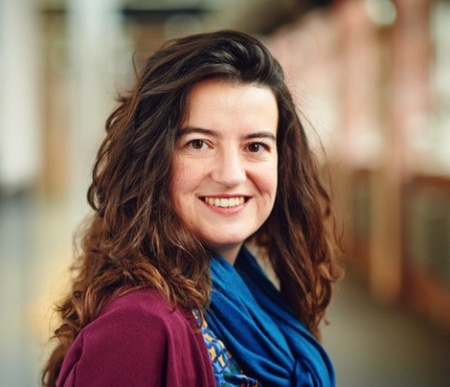
Ann Dooms (PhD in mathematics, 2004) is professor at the Department of Mathematics and Data Science of the Vrije Universiteit Brussel (VUB), where she leads the research group Digital Mathematics (DIMA). She develops mathematics for digital data science with applications in the cultural heritage sector such as image stitching and registration, painting analysis, text extraction from scanned newspapers and manuscripts.
Clemens Neudecker
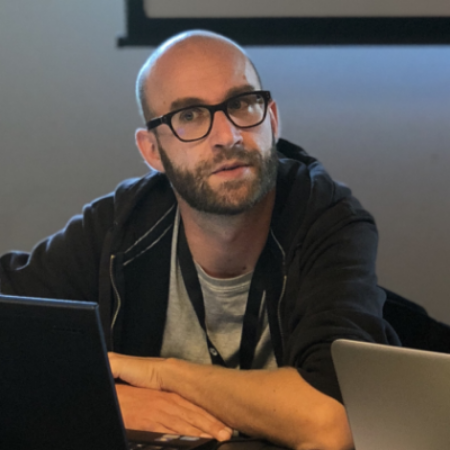
Clemens Neudecker studied Philosophy, Computer Science and Political Science at the Ludwig-Maximilians-Universität in Munich and has worked as Research Advisor to the Directorate General of the Berlin State Library since 2014. After starting to work on digitisation as a researcher in the Digitisation Center of the Bavarian State Library from 2003 - 2009, he joined the Research Department of the National Library of the Netherlands as Project Manager from 2009 - 2014. His main interests are research and development in the areas of Computer Vision, Natural Language Processing, and the Digital Humanities.
Ian Milligan
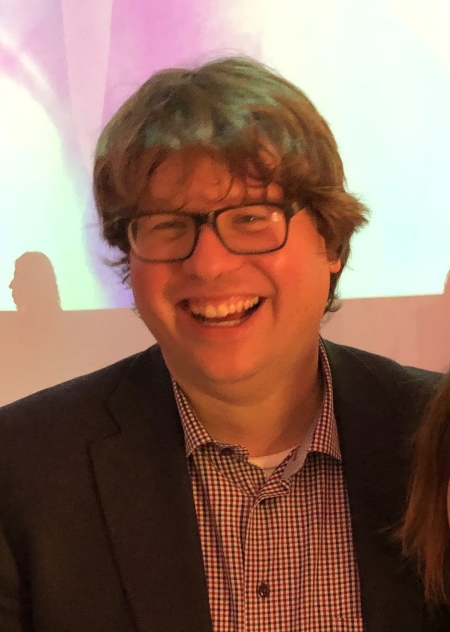
Ian Milligan is an associate professor of history at the University of Waterloo (Canada). His primary research focus is on how historians can use web archives, as well as the impact of digital sources on historical practice more generally. Most recently, he wrote the 2019 monograph History in the Age of Abundance: How the Web is Transforming Historical Research.
Gerben Zaagsma
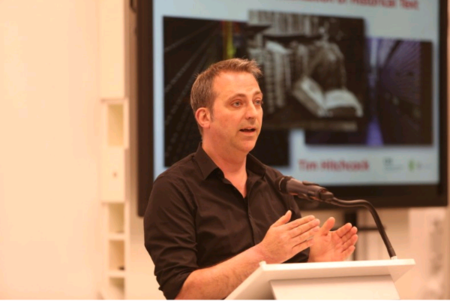
Dr. Gerben Zaagsma is an Assistant Professor at the Centre for Contemporary and Digital History (C²DH) at the University of Luxembourg. His main research and teaching interests are modern Jewish history, digital history, and music history. Within the context of digital history he is particularly interested in the methodological and epistemological implications of using new technologies in historical research and writing. He currently works on two related projects that investigate the politics of digitisation and the history of digital history.
Presenters
Dilawar Ali
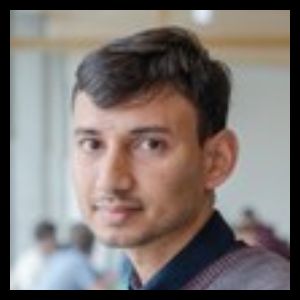
Dilawar Ali is a member of the research groups IDLab and CartoGIS, in the departments of Electronics and Information Systems and Geography at Ghent University (Belgium) and has been working there since January 2019 as a PhD student. His research focuses on spatiotemporal data analysis, information processing and machine learning for the analysis of moving objects and topological relationships of different objects. He is currently working on a project with the Royal Library of Belgium about information extraction from historical newspapers. In the past he worked for the EUreca project, a location-based application to explore cities based on geospatial data.
Matthias Arnold
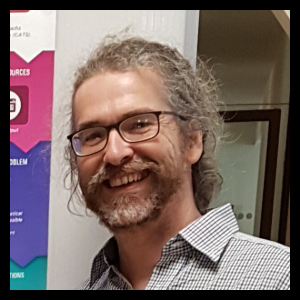
Matthias Arnold was trained in East Asian Art History, European Art History and Chinese Studies. His Magister thesis conceptualised a prototype of a multimedia CD-ROM on the tomb of King Zhao Mo of Nan Yue. He coordinated the European Center for Digital Resources in Chinese Studies and co-headed the IT department at the Center for East Asian Studies at the University of Heidelberg (Germany). Since 2008, he has been working at the Heidelberg Research Architecture (HRA), the Digital Humanities unit of the Cluster of Excellence ‘Asia and Europe in a Global Context’, now the Heidelberg Centre for Transcultural Studies, where he has conceptualised and coordinated technical development and implementation of research databases - mostly comprising non-Latin script research data. The project ‘Early Chinese Periodicals Online’ (ECPO) and its many challenges in processing the material to produce machine-readable data and text have been the focus of his recent work.
Timlynn Babitsky and Jim Salmons
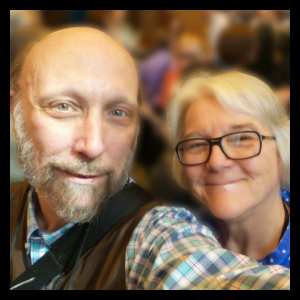
Jim Salmons and Timlynn Babitsky are members of the emerging cohort of passion-driven Citizen Scientists who bring new perspectives and skill sets to their domains of interest. After they both survived stage 4 cancer battles, Jim and Timlynn committed to Pay-It-Forward as Citizen Historian preservationists by completing their collection of the 48 issues of Softalk magazine and funding its digitization into the Internet Archive. They feared that their beloved magazine chronicling the dawn of the microcomputer and digital revolution would gather digital dust on the virtual shelves of the Archive. To generate public and scholarly interest in this publication, they initially envisioned the creation of a social gaming platform to create a Linked Open Data ‘fact cloud’ of the detailed historical record captured in the journalistic amber of this publication. Once they understood that their vision of a 'fact cloud' was what Digital Humanities researchers would describe as an annotated ground truth edition of the magazine, they began their transition from Citizen Historians to Citizen Scientists. Their research is focused on development of the MAGAZINEgts ground truth storage format for serial publications. They have contributed a Roadmap for Citizen Scientists Participation and are active community members in the Time Machine EU project and organisation.
Julie M. Birkholz
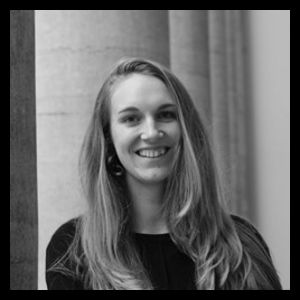
Julie M. Birkholz is Assistant Professor of Digital Humanities (DH) at Ghent University (Belgium) and Lead of the Royal Library of Belgium’s Digital Research Lab. Her research expertise is in historical social network analysis. From 2017 – 2020 she was a DH Fellow on the ERC Agents of Change research project WeChangEd, investigating the historical networks of women editors, periodicals and organisations in Europe, as well as the research data manager for the linked open data of the bibliographic information of these editors. From 2014 – 2017 she was a Postdoctoral Researcher at the Centre for Higher Education Governance Ghent, researching the identification of social networks through web data. She holds a doctorate in Organization Sciences from the VU University Amsterdam (The Netherlands). Given that the study of networks, in both the theory and methods, crosses disciplines, her research is inherently interdisciplinary. Her most recent research explores a computational method for extracting social networks from historical newspapers.
David Brown
David Brown graduated with a BA in History from Trinity College Dublin (Ireland) in 1987. After a career in the Irish tech sector, he returned to TCD to work on The Down Survey of Ireland project from 2011-2013. This site, launched in 2013, proved to be both an immense popular success and an invaluable research tool for historians of the Cromwellian land settlement, 1655-1659. Following the completion of this project, he completed a PhD in networks of early modern English and Irish Atlantic merchants in 2016. He was co-editor, with Professor Micheál Ó’Siochrú, of a five volume critical edition of The Books of Survey and Distribution for the Irish Manuscripts Commission, 2016-18, and then joined Beyond 2022 as Archival Discovery Lead. This project aims to recreate, in digital form, the Public Record Office of Ireland, destroyed during the outbreak of the Irish Civil War in 1922. His monograph, Empire and Enterprise: Money, power and the Adventurers for Irish land during the British Civil Wars, was published by Manchester University Press in 2020. He is currently researching the development of Ireland’s trade with the Atlantic world in the late-seventeenth century.
Alix Chagué
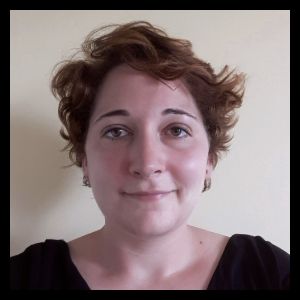
Research and Development Engineer in the Inria (French Institute for Research in Computer Science and Automation) ALMAnaCH team and co-coordinator of the ‘Documentation et Humanités Numériques’ master’s program at the École du Louvre, Alix Chagué specialised in late modern and contemporary art history before graduating in Digital Humanities from the École nationale des Chartes in Paris. She now focuses on computational archival sciences and the patrimonialisation of data.
Sally Chambers

Sally Chambers is Digital Humanities Research Coordinator at the Ghent Centre for Digital Humanities, Ghent University, Belgium and National Coordinator for DARIAH in Belgium. Sally initially started working in academic libraries in the United Kingdom in the mid-1990s before joining The European Library (the predecessor of Europeana) at the National Library of the Netherlands in The Hague in 2005. Since then she has worked for DARIAH-EU, based in the Göttingen Centre for Digital Humanities, Germany before joining the GhentCDH in early 2015. Since late 2020, she divides her time between GhentCDH and the KBR, Royal Library of Belgium, where she coordinates the DATA-KBR-BE project to facilitate data-level access to KBR’s digitised and born-digital collections for digital humanities research. She is an active participant in the international Galleries, Libraries, Archives and Museums (GLAM) Labs community, and a co-author of Open a GLAM Lab, a practical guide for setting up, running and maintaining a Digital Cultural Heritage Innovation Lab.
Vera Maria Charvat
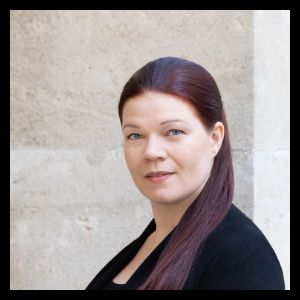
Vera Maria Charvat is a trained music historian specialising in plainchant and is currently studying Digital Humanities at the University of Graz (Austria).
Floriane Chiffoleau
Holding a master’s degree in late modern history and in ‘Technologies numériques appliquées à l’histoire’ at the École nationale des Chartes, Floriane Chiffoleau is a Research and Development Engineer in the Inria (French Institute for Research in Computer Science and Automation) ALMAnaCH team working on the digital edition of the correspondance of Paul d’Estournelles de Constant within the DAHN project.
Mirjam Cuper
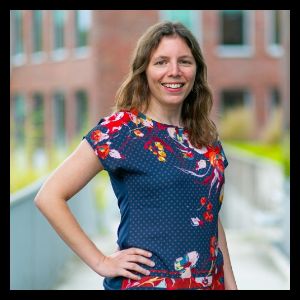
Mirjam Cuper works as a Data Scientist for the research department of the National Library of the Netherlands (KB). She has several years of experience in the area of data analysis and data science in different types of organisations. She is currently graduating for the master Business Process Management at the Open University of the Netherlands with a thesis about process mining. For her work at the KB, Mirjam is involved in various data projects. One of the main projects she is working on is the creation of a dashboard with visitor information from the KB’s webservers, based on logfile analyses. Furthermore, she is interested in digital heritage and optical character recognition (OCR) and is a member of a research group with a focus on improving OCR quality. As part of this project, she is researching reliable ways to measure the OCR quality, even if Ground Truth is not available. In addition, she supports the researchers of the KB’s researcher-in-residence project.
Alessandra De Mulder
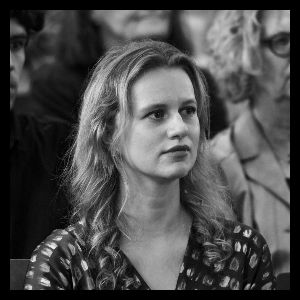
Alessandra De Mulder studied history at the University of Antwerp (Belgium) and is attached to the Centre for Urban History (CSG) at the same institution where she is working on a project on consumption values in eighteenth-century London based on a digital analysis of auction advertisements.
Quan Duong
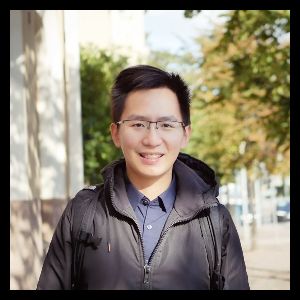
Quan Duong is currently finalizing his master’s thesis on automatic music generation at the Department of Computer Science, University of Helsinki (Finland). His research interests include various topics, such as Artificial Intelligence and Natural Language Processing. From July to December 2020 he worked as a research assistant for the NewsEye Project.
Michal Hradis
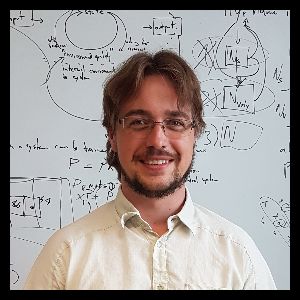
Michal Hradis is a researcher and a project leader at the Faculty of Information Technology, Brno University of Technology (Czech Republic). He specialises in visual intelligence, artificial neural networks, OCR and handwritten character recognition, and Digital Humanities. He is a principal investigator in the national project PERO and the European CEF project OCCAM. He published research papers on various computer vision topics, with a special focus on DH applications.
James Hyman
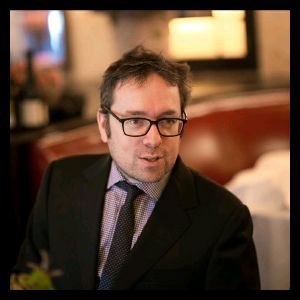
James Hyman is owner and curator of HYMAG—formerly The Hyman Archive—founded in 2011 although he began obsessively collecting magazines in the early 1990s. His collection, currently housed in warehouses in London, holds the Guinness World Record for ‘Largest Collection of Magazines’ and the physical archive is now an invaluable resource for creatives and academics. The collection celebrates and credits the creator and the collector. With his professional career as Managing Director of a consultancy offering music clearance and production services to the entertainment industry, Hyman is adept at protecting both the copyrights of rights-holders and the rights of magazine collectors/donors helping to amass the enormous HYMAG cultural heritage resource. Hyman and his network of fellow magazine collector-donors share a determination to preserve and document the history of magazines.
Antti Kanner
Antti Kanner is a doctoral student in Digital Humanities and Finnish Language at the University of Helsinki (Finland). As a linguist who ventures into computation, he is mostly interested in the implications that computational methodologies have on theories of semantics and pragmatics. His dissertation deals with vector space models and distributional semantics.
Heikki Kokko
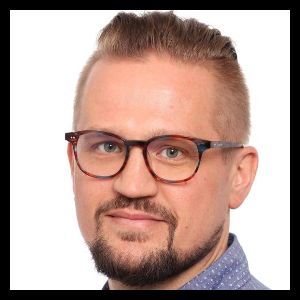
Heikki Kokko is a postdoctoral researcher and works at the Centre of Excellence in the History of Experiences at the University of Tampere (Finland). He received his PhD in History about the emerging of the modern self in the readers’ letters published in Finnish-language newspapers in the middle of the 19th century. Currently, he is working on a project that compiles 19th century Finnish-language readers’ letters in a digital database. His research interests are 19th century history, history of experiences, social science history, conceptual history, and Digital Humanities.
Benjamin Lee
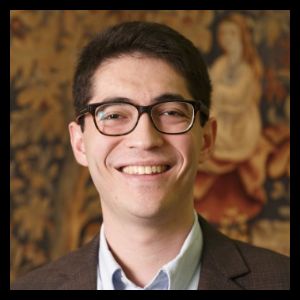
Ben Lee is a third year PhD student in the Paul G. Allen School for Computer Science & Engineering at the University of Washington (USA), where he studies human-AI interaction with his advisor, Professor Daniel Weld. Previously, he was a 2020 Innovator in Residence at the Library of Congress. Ben has also served as the inaugural Digital Humanities Associate Fellow at the United States Holocaust Memorial Museum, as well as a Visiting Fellow in Harvard's History Department. He is currently a National Science Foundation Graduate Research Fellow.
Gaël Lejeune
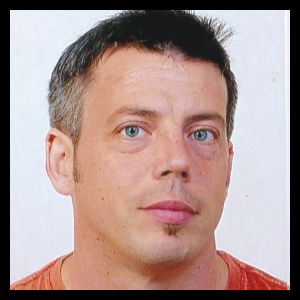
Gäel Lejeune is Associate Professor in Computer Science at Sorbonne University (France). His research focuses on the influence of language variation (languages, dialects, noisy data, etc.) on the results of Natural Language Processing systems.
Steven Lomazow
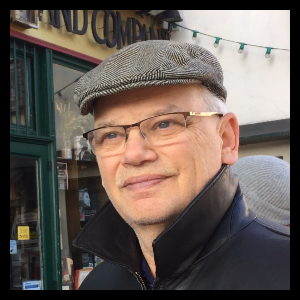
Steven Lomazow is owner and curator of The Great American Magazine Collection focused on the role of magazines as a reflection of all aspects of American popular culture from pre-revolutionary times to the present day. He has been amassing American periodicals since 1972, and his collection is now considered the most extensive in the United States. The 1998 bibliography of his collection (with subsequent additions) is considered the standard reference for academics and professionals.
Eetu Mäkelä
Eetu Mäkelä is a tenure track assistant professor of Human Sciences – Computing Interaction at the University of Helsinki (Finland). His interests lie in exploring the challenges complex human data and questions pose for computational algorithms, workflows and tools. These are also the questions he engages with in his work with the Computational History Group.
Jani Marjanen
Jani Marjanen is a historian and postdoctoral researcher at the University of Helsinki (Finland). He specializes in eighteenth and nineteenth-century patriotism, the theory and method of conceptual history, and the development of public discourse. In the Helsinki Computational History Group he works on the analysis of public discourse through quantitative and qualitative analysis of metadata and historical language. He is one of the editors of Contributions to the History of Concepts.
Sarah Oberbichler
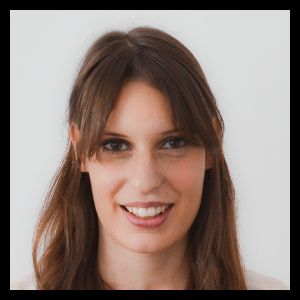
Sarah Oberbichler is a postdoctoral researcher and works at the Institute of Contemporary History at the University of Innsbruck (Austria). She received her PhD in Contemporary History about the reception of immigration in South Tyrolean Newspapers (1990-2015). Currently, she is working on projects for the analysis and visualization of digital newspapers and digital archives. Her research interests are European and regional contemporary history, migration history, media, and Digital Humanities.
Étienne Ollion

Étienne Ollion is a junior research fellow in Sociology at CNRS (The French National Centre for Scientific Research) and an associate professor of Sociology at the École polytechnique (France). A specialist of political sociology, he is the author of several books and articles using computational methods for the social sciences.
Nenad Pantelic

Nenad Pantelic is an economist with a focus on institutional change and economic liberalism. He has worked with different empirical and historical methods on the change of economic liberalism through time, topics and countries. He is also finishing his Master Studies in Data and Information Science.
Sofia Papastamkou
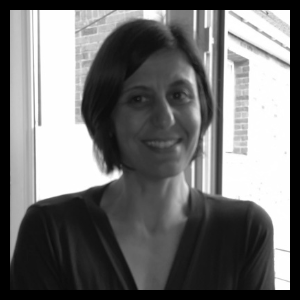
Sofia Papastamkou earned a PhD in the history of international relations PhD after graduating with a master’s degree in Digital Humanities from the École nationale des chartes. She specializes in Digital History and works as an Assistant Research Engineer in Digital Humanities for the CNRS (French National Centre for Scientific Research) within the Institut de recherches historiques du Septentrion at the University of Lille (France). She is Managing Editor of the Programming Historian en français.
Caroline Parfait
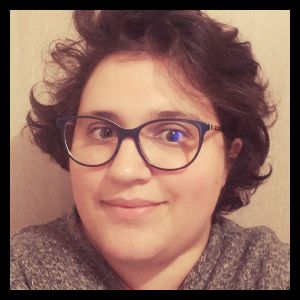
Caroline Parfait is a PhD student at Sorbonne University (France). Her current research focuses on the evaluation of machine learning approaches on named entity recognition systems with a focus on 19th century novels.
Jessica Parr

Jessica Parr is Assistant Professor in History at Simmons University, Massachusetts (USA). She is a teacher-scholar who specializes in the Atlantic World with particular interests in the study of slavery, memory studies, and Digital Humanities. She is on the editorial board for The Programming Historian and has been teaching at the university level since 2005.
Lidia Pivovarova
Lidia Pivovarova is a Postdoctoral Researcher in the Department of Computer Science, University of Helsinki (Finland). Lidia's research interests lie in natural language processing, more specifically in advanced methods for information extraction and media monitoring. Her favourite research objects have been large collections of newspaper articles. Lidia has participated in a number of cross-disciplinary research projects that included collaboration with linguists, sociologists, journalists and other domain experts. Currently she is working on two media-related projects: NewsEye, aimed at supporting historical newspapers studies, and Embeddia, aimed at automatic news generation for under-presented languages.
Riva Quiroga
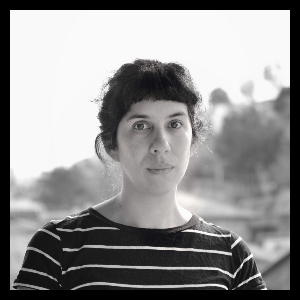
Riva Quiroga is a doctoral student in Linguistics at the Catholic University of Chile (Chile). She is a co-founder of the RLadies Santiago, RLadies Valparaíso and LatinR projects. She is Managing Editor of the Programming Historian en español.
Nina C. Rastinger

Nina C. Rastinger is a researcher at the Austrian Centre for Digital Humanities and Cultural Heritage (Austrian Academy of Sciences). Her current areas of interest include historical newspapers, language change and digital methods for corpus-based research. At present, she is part of the City of Vienna-project ‘Time Machine Vienna: Corresponding digital data treasuries and knowledge resources’ ,as well as of the Austrian Science Fund project ‘Relational Adjectives in the History of German’. She has received degrees in both German Philology and Psychology and is currently completing a master’s degree in German Philology at the University of Vienna.
Matthias Schlögl

Matthias Schlögl studied International Development at the University of Vienna and is currently undertaking a PhD project at the University of Bath (Department of Social & Policy Science). Since his studies at university, he has been interested in computer aided methods such as Natural Language Processing (NLP), data scraping/mining etc. and has used these methods and techniques in research projects ever since. His research—including his PhD project—focuses on the nexus of science and politics on the one hand and science and business/civil society on the other. He was engaged in several international (including the FP7 project ALICE RAP) and national research projects at the University of Bath (United Kingdom), the University Aarhus (Denmark), the Social Science Research Center Berlin (Germany), and the Commission for Development Research (Austria).
Rubing Shen
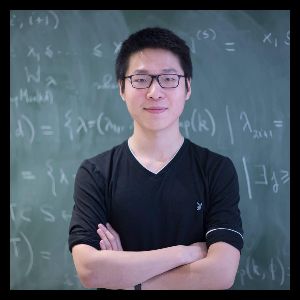
Rubing Shen is a PhD candidate in Sociology at the Médialab, Sciences Po (France). A graduate from the École polytechnique, his research focuses on French political journalism using computational methods.
Pavel Smrz
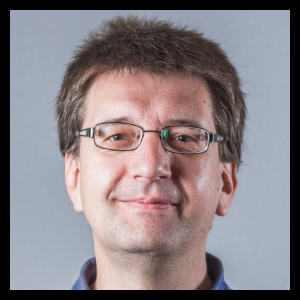
Pavel Smrz is an associate professor and research project leader at the Faculty of Information Technology, Brno University of Technology (Czech Republic). His research interests include advanced machine learning and artificial intelligence, knowledge systems, natural language processing, Digital Humanities and human-computer interaction. He leads the Knowledge Technology (KnoT) Research Group which has participated in more than 20 Horizon2020 projects and has also been involved in various national and industrial projects. Pavel has authored more than 70 papers in scientific journals and in conference proceedings. He led the Czech mission in ISO/TC 37 and was a member of the W3C Uncertainty Reasoning for the World Wide Web Group.
Donald Sturgeon
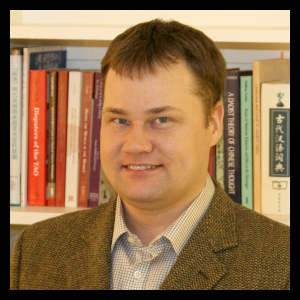
Donald Sturgeon is an Assistant Professor in the Department of Computer Science of Durham University (United Kingdom).
Mikko Tolonen
Mikko Tolonen is an Associate Professor (tenure track) in Digital Humanities at the University of Helsinki (Finland). His background is in intellectual history and he is the PI of Helsinki Computational History Group. Since 2015, he has been organising the Helsinki Digital Humanities Seminar. He is the subject head of Digital Humanities and he has designed the DH teaching module at the Faculty of Arts. His current main research focus is on an integrated study of public discourse and knowledge production that combines metadata from library catalogues as well as full-text libraries of books, newspapers and periodicals in early modern Europe. Tolonen also works in other areas of Enlightenment Studies.
Steven Verstockt
Prof. dr. Steven Verstockt received his master’s degree in informatics from Ghent University (Belgium) in 2003. In 2008, he began working on his PhD degree on multi-modal video fire analysis at the Multimedia Lab of the Electronics and Information Systems Department of Ghent University–iMinds, where he has worked since 2012 as a postdoctoral researcher. In September 2015, he started a tenure track professorship in Multimedia. His current research focuses on methodologies and tools to improve the spatio-temporal (meta)data quality and querying process, and optimize mapping, finding and analyzing data related to a specific place and time in a variety of contexts. Over the last years, his research group has gotten involved in several cultural heritage related projects/proposals to share their expertise on spatio-temporal data collection, filtering, classification, enrichment, mapping and visualization.
Chahan Vidal-Gorène
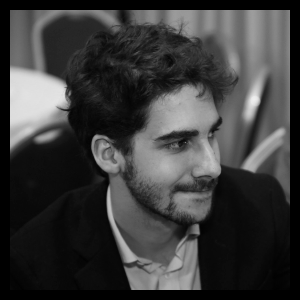
Chahan Vidal-Gorène is a PhD student at École Nationale des Chartes-PSL (France), specialising in Armenian and Computational Paleography. He is the CEO of Calfa, a start-up specialized in natural language processing for oriental and poorly endowed languages and is currently involved in digitisation projects of Arabic and Armenian manuscripts (HTR, document classification, indexing) with Cultural Heritage institutions.
Nathan Yarasavage
Nathan Yarasavage is a digital projects specialist in the Serial and Government Publications Division at the Library of Congress (USA), where he coordinates the production activities of newspaper and serial digitisation activities such as the National Digital Newspaper Program (NDNP). As part of the Library of Congress NDNP team, he also participates in technical development, outreach, and collection management aspects of the program. Before joining the Library of Congress in 2010, Nathan worked on newspaper digitization projects at the University of Illinois, including their first NDNP award. He has a Master of Library and Information Science degree from the University of Pittsburgh.